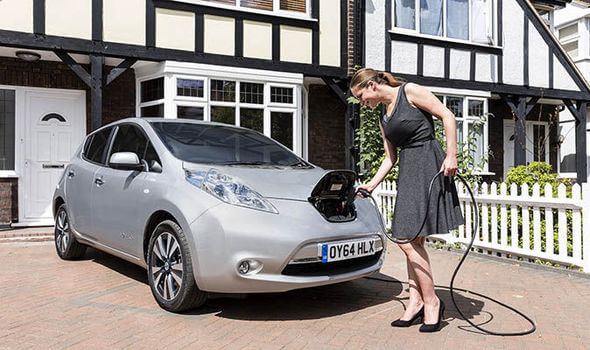UK unprepared for surge in electric cars

UK unprepared for surge in electric cars
Members of the Green Alliance says that simultaneous charging of electric vehicles could potentially damage electronic equipment unless action is taken by 2020.
The United Kingdom’s energy network is apparently not ready for the surge in electric car use as well as solar panels that are predicted in the next few years, according to a report.
Where you have a concentration of battery-powered electric cars could it could result in 1% of the UK experiencing unplanned drops in voltage which could potentially damage electronic equipment.
That is why some are warning that as few as six electric vehicles located near one another could lead to what's known as “brownouts” (a reduction in or restriction on the availability of electrical power in a particular area).
Charging one car usually requires a similar amount of electricity as a typical home uses in three days and therefore when multiple electric vehicles are charging at the same time at a local level can put a lot of stress on the electric grid causing outages and possibly even damage to components.
Ministers also recently called on EV owners not to charge their vehicles at times of peak energy demand to reduce the risk of power shortage.
Electric Network operators will request EV drivers to use smart chargers, which can defer when cars are topped up.
At the moment there are 12,000-plus charging points across the UK but these are not smart chargers but are considered as “dumb” chargers.
The Green Alliance said that by 2025 up to 700,000 electricity users could suffer blackouts due to a lack of non-smart chargers. Dustin Benton, who is the author of the report said,
“The government should say all chargers from now on must be smart. Once they’re in, it’s very expensive to retrofit them,”.So far there has not been a clustering of electric cars in any particular area so such hotspots have not yet become a serious problem for their infrastructure but there could be problems in the future as more and more electric vehicles.
It was also noted that electric car sales were up 56% last year over the 2015 figures so a rapid uptake in EV sales is expected in the coming years.
It is also expected that the price of solar power will dramatically drop by 2020 leading to many homes having a combination of solar cells and household batteries, such as Tesla’s Powerwall which could result in houses being able to supply their own electricity independently for months at a time by 2025.
A National Grid spokesman said: “Growing use of solar power and electric cars will change the way the energy system is managed, but National Grid has been consistently dealing with evolution in the energy sector for decades, and these latest changes also present great opportunities.
“For example, electric vehicles can be used to help feed energy back into the system at key times, while solar power will play a crucial role in providing clean energy as coal-generated power stops being used.”

Author

Justin Kavanagh
Justin Kavanagh is a recognised leader
in automotive intelligence and vehicle
data supply to the entire motor industry.
He has almost 20 years experience in
building systems from the ground up.
As the Managing Director of Vehicle
Management System, he understands the
need and importance of trustworthy and
reliable vehicle history and advice to
both the trade and the public.
Follow me on LinkedIn